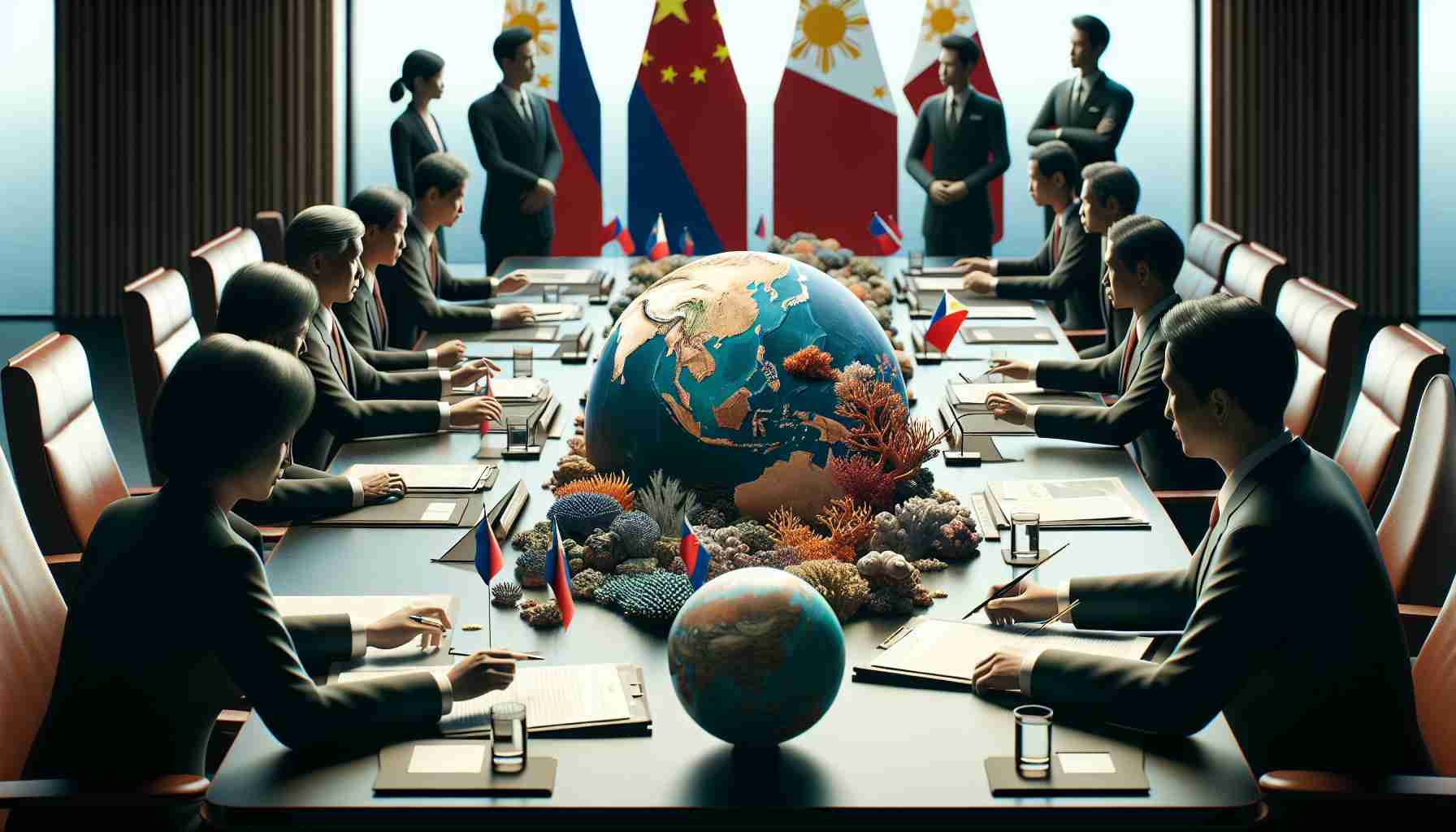Dialogue Leads to Consensus on Maritime Conduct in Disputed Reef
Amidst growing regional tensions, the Chinese Embassy in the Philippines has disclosed that internal understandings and arrangements have been repeatedly reached with the Filipino side concerning the management of the disputed Scarborough Shoal, locally known as Panatag Shoal. These revelations come in the wake of Philippine officials denying that any deal had been brokered with China under the administration of President Ferdinand Marcos Jr.
Reaffirming its commitment to responsibly manage the situation around the shoal, the Chinese Embassy emphasized its detailed and complete records of negotiations and communications with the Philippines. According to the embassy, these factual records demonstrate ongoing dialogue aimed at controlling disputes and avoiding conflict in an effort to maintain peace.
Earlier this year, discussions with the Philippine Western Command resulted in a new model for managing the reef, described as a trust-building measure independent of the sovereign positions of both nations. This new management model reportedly received endorsement from key figures in the Filipino command structure, including the Defense Minister and National Security Adviser.
Positive Reflections on Military Cooperation
The implementation of this new model was apparent when the Philippines successfully conducted a resupply operation on February 2, with the Chinese side acknowledging the efforts of the Philippine Western Command positively. The peaceful nature of this operation reflects the extent to which both parties adhere to their understanding and the constructive steps made to prevent potential clashes.
The Chinese Embassy also referred to a July 5 meeting last year between the Chinese Ambassador to the Philippines, Huang Xilian, and the Philippine Defense Secretary, during which they discussed a “gentlemen’s agreement” related to the reef.
With all communications and public releases on the meeting available on the websites of both the Philippine Department of National Defense and the Chinese Embassy, the embassy expressed confusion as to why the Marcos administration persistently denies any agreement with China regarding Scarborough Shoal management.
Understanding and cooperation concerning the management of the Scarborough Shoal between China and the Philippines is a complex and sensitive issue that touches on sovereignty, international law, and regional security. Here are some key questions, answers, and the challenges or controversies associated with this topic:
What is the Scarborough Shoal and why is it significant?
Scarborough Shoal, also known as Panatag Shoal or Huangyan Dao, is a rich fishing ground and a strategic maritime area in the South China Sea. Its significance comes from its location, its natural resources, and its role in regional security and shipping routes. Both China and the Philippines claim sovereignty over the area, making it a flashpoint for territorial disputes in the South China Sea.
What are the key challenges or controversies?
– Sovereignty Disputes: China’s nine-dash line claim in the South China Sea overlaps with the exclusive economic zones (EEZ) of several Southeast Asian nations, causing disputes over fishing rights, oil and gas reserves, and freedom of navigation.
– Regional Security: The South China Sea is a vital maritime corridor for global trade. Ensuring stability in the region is important for international commerce and security.
– Legal and Diplomatic Complexity: The Permanent Court of Arbitration (PCA) ruled in favor of the Philippines in 2016, invalidating China’s expansive territorial claims. However, China has refused to recognize the ruling, complicating diplomatic relations.
What are the advantages of the development of understanding between China and the Philippines over reef management?
– Decrease in Tensions: Establishing communications and mutually agreed-upon management practices can reduce the risk of military confrontations.
– Economic Benefits: Cooperation can lead to shared access to fishing grounds and potentially joint exploration and utilization of marine resources.
– Trust Building: Continued dialogue may pave the way for broader regional cooperation and conflict resolution.
What are the disadvantages?
– Sovereignty Concessions: Any agreement may be seen domestically as a concession of sovereignty, potentially causing backlash from local populations and political opposition.
– Encouragement of Assertiveness: If China perceives the agreement as a sign of weakness, it may become more assertive in its territorial claims in other parts of the South China Sea.
– International Law: By engaging in bilateral agreements, the Philippines might undermine the multilateral, rules-based order, particularly the UNCLOS framework and PCA ruling.
In the broader context, the situation in the South China Sea involves overlapping territorial claims with other nations, including Vietnam, Malaysia, Brunei, and Taiwan. Navigating these disputes requires multilateral discussions through avenues like ASEAN summits or broader frameworks that include external powers concerned about freedom of navigation, such as the United States.
For further authoritative information, please visit the website of the Philippine Department of Foreign Affairs or the Ministry of Foreign Affairs of the People’s Republic of China. Please note that while these links are valid as of my knowledge cutoff date, the accessibility and content might change beyond that point.

